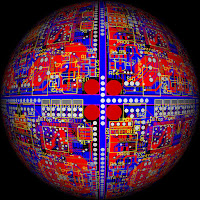Waarom de overheid een nationale gegevensinfrastructuur nodig heeft
Data zijn randvoorwaardelijk voor het functioneren van een organisatie en worden steeds belangrijker, zo ook bij de overheid. De omvang en diversiteit van die data neemt toe, alsook de snelheid van uitwisseling, het aantal relaties en verbindingen. Tot op heden prevaleert daarbij binnen de overheid de zogenaamde sectorale aanpak. Dat wil zeggen dat iedere sector "gaat" over zijn of haar eigen domein en probeert daarbinnen het datalandschap te organiseren. Voorbeelden van sectoren zijn volksgezondheid, ruimtelijk domein, gemeenten en dergelijke. In deze blog wil ik ingaan op 1 aspect dat om aandacht vraagt namelijk de mogelijkheid tot hergebruik, remixen, aanpassen, verrijken van data ten behoeve van de werkprocessen. De overheid is een veelheid aan organisaties maar als het goed is werkt ze aan dezelfde publieke opdrachten die vanuit de regering en volksvertegenwoordiging op haar afkomen. Daarbij is het evident dat we willen dat genoemde organisaties, binnen kaders van wet-



